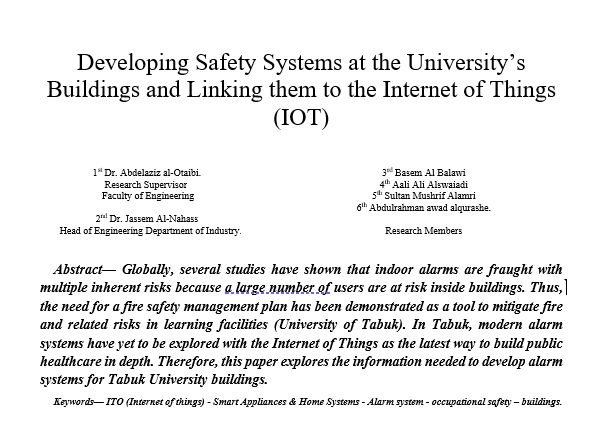
اطار عام لعملية سلسلة توريد مواد البناء في صناعة الانشاءات المحلية pdf
ملخص الدراسة:
Materials require special attention while creating a project plan, since it forms a large portion of the total cost of a construction project. Materials are essential for the daily progress of a construction project. The absence of materials when needed is one of the main causes of loss of productivity in a jobsite. Current materials management practices in the construction industry are performed on fragmented basis with unstructured communication and no clearly established responsibilities between the parties involved. The highly fragmentation is a result of the separation of design and construction, lack of coordination and integration between various functional disciplines, poor communication, etc. All of theses are the important factors causing performance-related problems such as delay in material ordering and receiving, low productivity, cost and time overrun, conflict and disputes. The aim of this research is to develop a framework for the best practice of material supply chain process through the project phases that suits the local construction industry in order to help contractors to have the right materials in the right quantities (at the right place) at the right moment at minimal cost. This will assist contractors to improve their productivity, minimize losses and increase competitiveness. To realize the research aim, a survey questionnaire was used to achieve the following objectives: exploring the current practices of material supply chain process, identifying the important activities that form the material supply chain process, studying the contractor/ supplier relationship, studying the impact of the Israeli closure of the Gaza Strip on the material supply chain process, providing solution to the risks and uncertainties inherent in the construction industry, identifying the most occurred problems facing the contractors through the project phases and finally identifying the key factors that may contribute in integrating the phases of the material supply chain process. Eighty one questionnaires were distributed to the contractors of first, second and third class. Fifty questionnaires were received back and analyzed. The important result of this study is developing Material Supply Chain Process Framework. The framework consists of six phases which are: bidding phase, sourcing phase, procurement phase, construction phase, post construction phase and evaluation phase. Each phase involves a set of activities that should be viewed as integrated activities rather than a series of separated ones. The study reveals that contractor/supplier relationship is based on project by project basis. Most of the contractors do not form long term agreement or partnership with the suppliers. Competitive pricing is the most important criteria adopted for selection of the suppliers and it is primarily based on the lowest price. The study shows that different level of minimum buffer stocks and buffer time were advocated by the respondents to mitigate the uncertainties inherent in the construction setting and the problem of Israeli closure to the borders of the Gaza Strip. The problems that may hamper the smooth application of the material supply chain process through project phases were identified and possible solutions for these problems were provided. Poor communication among the parties involved is the common problem occurred in each phase of the material supply chain process. Finally, the study reveals that understanding the client needs and objectives by the contractors, subcontractors and suppliers and committing to these needs and objectives, establishing a protocol for dealing effectively with disputes and problems that may arise between the project participant during the course of project implementation and establishing a system among the project participants for communication and share project information in timely and accurate manner are the most key factors that contribute in integrating the project phases and the project participants.
توثيق المرجعي (APA)
خصائص الدراسة
-
المؤلف
Al Shorafa, Alaa Ali Rageb
-
سنة النشر
2009
-
الناشر:
the islamic university
-
المصدر:
المستودع الرقمي للجامعة الإسلامية بغزة
-
نوع المحتوى:
رسالة ماجستير
-
اللغة:
English
-
محكمة:
نعم
-
الدولة:
فلسطين
-
النص:
دراسة كاملة
-
نوع الملف:
pdf



